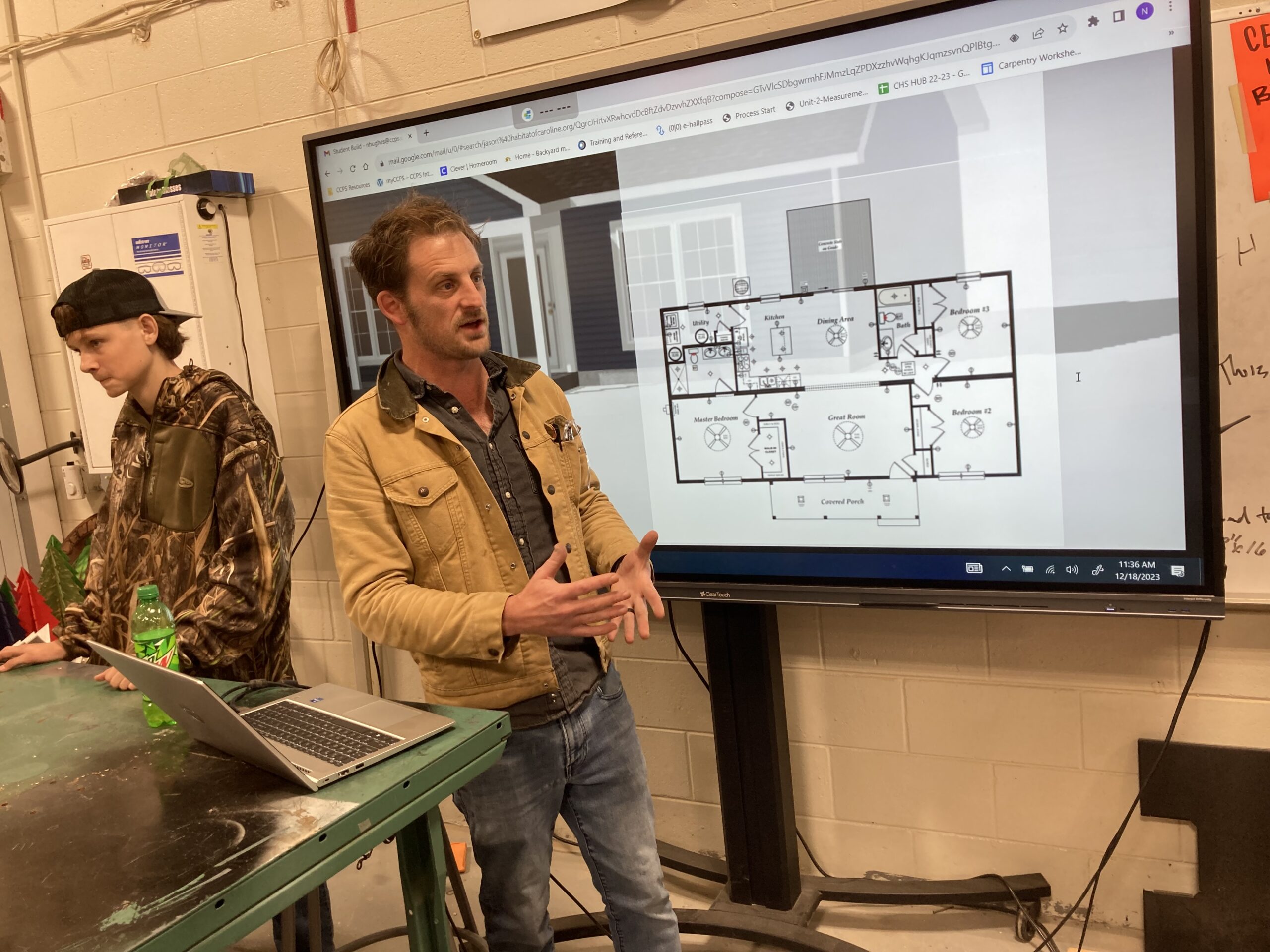In January, carpentry students at Caroline High School will start building a 1,500-square-foot house in the parking lot outside their classroom.
Once they’ve completed the modular home—from drywall and flooring to cabinetry and fixtures, but minus the roof—it will be transported to its final site and sold at-cost to a disabled veteran. The home has zero-step entry, is ADA-adaptable, and energy efficient.
The project is a collaboration between Caroline High School’s new Future Builders program, which received a $5,000 donation this week from the Fredericksburg Realtors Foundation, the nonprofit foundation of the Fredericksburg Area Association of Realtors, and Habitat for Humanity of Caroline County.
Members of FAAR’s staff and board, as well as the foundation’s board, and representatives from Habitat of Caroline were at Caroline High School on Monday for a check presentation ceremony.
Kim McClellan, FAAR’s public policy director, said the foundation is excited to support a program that adds to the area’s housing stock—especially at an affordable price—and provides students with critical skills they can use to gain employment in an industry facing labor shortages.
The home that the students will be building will be sold to a veteran using the USDA 502 Direct Loan or Veteran’s Administration Loan.
It’s one of 20 homes Habitat of Caroline will be building in the county with help from a $2 million grant from Virginia Housing that was approved by the George Washington Regional Commission last year.
The grant was tied to the creation of affordable housing units.
“‘Affordable’ is a broad-brush stroke,” said McWayne Williams, with Habitat of Caroline. “What we do is narrow that conversation down, so now it’s a workforce home. We do that by asking, what is the largest workforce in a rural area? The answer is schools and first responders. So we take and target the home to that income.”
The home has been designed to be ADA-adaptable, meaning it has all the components of accessibility and can easily become fully ADA-accessible, and it enables aging-in-place.
The plans have been approved and students will start “swinging hammers” in January, carpentry teacher Noah Hughes said.
There are 90 students in Caroline High School’s three-year carpentry program, and about 40—those in year two and three—will be involved in building the home. This will provide them with the skills that can land them well-paying jobs out of high school.
Hughes also provides his students with opportunities to gain certifications that employers are looking for, such as safety certifications from the Occupational Safety and Health Administration and the newer Blower Door Certification, which signifies eligibility to complete whole building airtightness tests—something that building codes will soon require, Hughes said.
The Future Builders program is part of the Virginia Department of Education—and Caroline County Public Schools—focus on career pathways in high school.
“We’re looking for ways to basically have students walk out and have a resume that doesn’t just say, ‘I graduated from high school,’ but it also says, ‘I can work safely because I have this certification from (the Occupational Safety and Health Administration)’ and I have experience building a house,” Hughes said. “Not every student is interested, but those that are—those are the ones we need to capture and really give them opportunities like this.”
by Adele Uphaus
MANAGING EDITOR AND CORRESPONDENT








